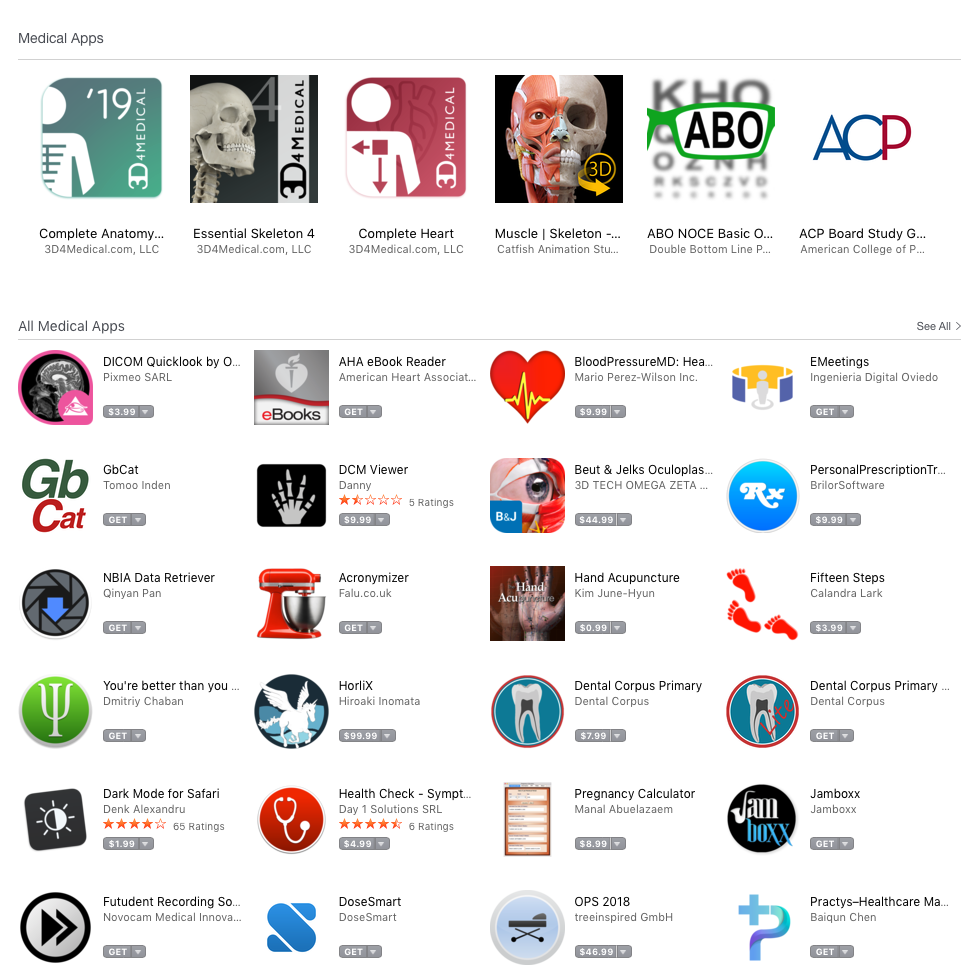Why You Need a Medical App
People today are using their mobile devices to simplify almost every element of their daily lives. Why should the process of seeking and receiving medical care and insights into personal health be any different?
It’s time for medical practices and businesses in the healthcare industry to adapt to consumer demands by creating enjoyable, valuable, digital experiences.
By developing medical mobile apps that help to monitor user health conditions and metrics like nutrition levels, organizations can provide more people with access to even the most basic levels of healthcare.
But the value of medical mobile apps doesn’t just apply to their users — healthcare organizations benefit as well.
In addition to creating convenient ways to perform actions that will benefit patients such as scheduling appointments with doctors, and sharing health-related information with others, medical applications also save healthcare organizations lots of time and effort when it comes to administrative duties and processes.
Plus, there’s clearly a market for these medical applications. It’s estimated that there are currently over 250,000 apps in the medical, health, and fitness sections of the Apple Store and Google Play.

People are clearly warming up to the concept of using medical applications to measure their day to day health, and to make the seeking and receiving of care more convenient. In other words, if you’re in the healthcare space, you’ll want to develop your own mobile medical application in order to stay competitive and relevant.
The Problem with Most Medical Apps
There’s no denying that the medical mobile app market is crowded, and some might call it oversaturated. However, it’s far from impenetrable.
While there are lots of applications and providers in the market, and a growing number of users who are eager to use mHealth solutions, it should be noted that there are a handful of common problems with health-related applications.
In fact, it’s been reported that the majority of these medical apps are ineffective. Some capture inaccurate data, while others display poorly crafted UX/UIs.
So, what makes the best of the best medical mobile apps stand out above the rest? Well, for starters, they avoid the following development blunders.
3 Development Blunders That Can Ruin Any Medical App
As we’ve discussed in the past, the most successful apps are meticulously thought out prior to launch.
The creators of the best apps spend a significant amount of time researching how to answer the questions that are most important to their users. But in the medical mobile app market, there are a handful of mistakes being made far too often that are holding many solutions back from achieving their true potential.
1. Failure to account for interoperability and integration.
The absence of reimbursement by insurance companies, or the inability to connect to electronic health records is a key oversight being committed by many medical app developers.
2. Lack of HIPAA compliance.
By failing to adhere to the rules and regulations set forth by HIPAA, many developers are opening their solutions up to threats to user privacy including a breach of confidentiality during the collection or transmission of sensitive data, and the distribution of untrusted software and hardware. The U.S. HIPAA is the ultimate authority in all things “healthcare”, and that no less includes the intrinsic, delicate realm of healthcare app development.
3. Disregard for collecting clinical validation.
Reliability can be considered from a purely technical perspective, but another element of reliability that cannot be ignored is the value of the content programmed in an app. Many readily available, low-cost medical apps are not based on evidence from research. This can end up being incredibly dangerous, as these apps may provide incorrect information, which users will then presume to be correct. When dealing with health data, this presents huge risks.
Final Thoughts
It’s clear that users around the world are eager to use medical applications regularly in order to increase their health and overall quality of life, but many medical app developers are falling short in terms of the quality of the solutions that they are providing.
For users to adopt, consistently use, and ultimately benefit from medical apps, medical practices and organizations in the healthcare industry must create meaningful solutions that are reliable, HIPAA compliant, and that account for interoperability and integrations with other existing systems.
These factors are essential to the adoption of medical apps among patients and care providers. Are you prepared to meet these challenges head-on?
Need to build a medical mobile app? Do you have an existing app that needs to be enhanced to meet the criteria presented in this article?
If so, contact Koombea today! Our team of experienced developers has precise expertise when it comes to building medical applications of the highest quality. Get in touch to start discussing your next project.
